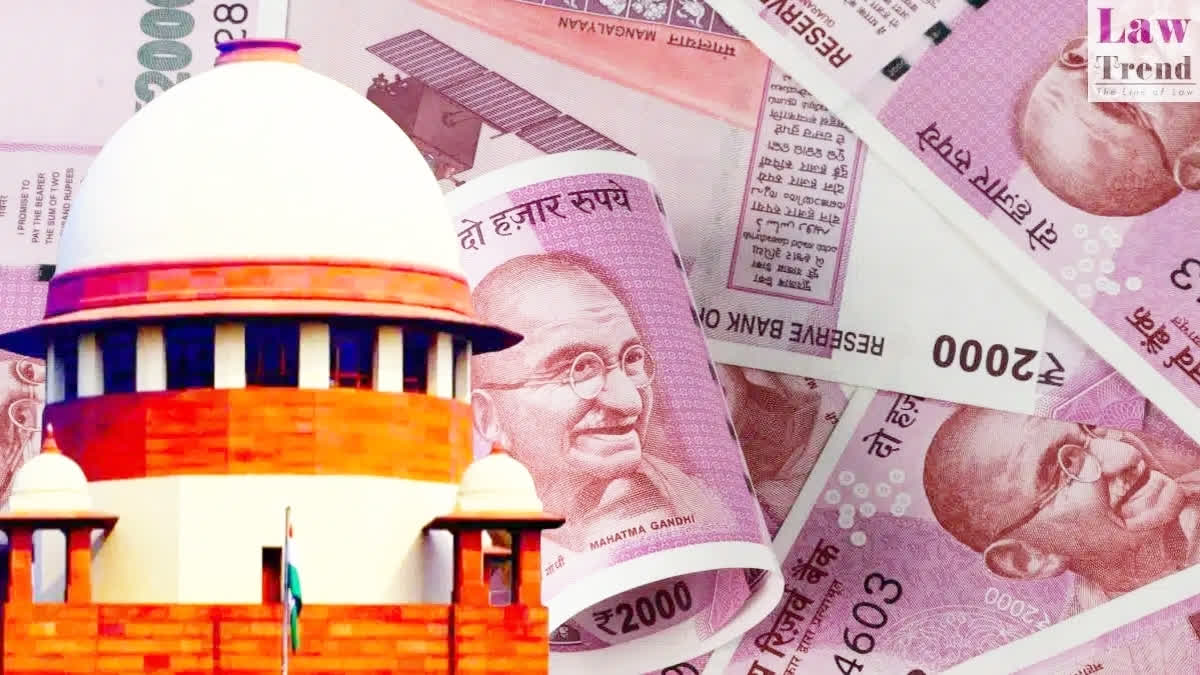New Delhi:The Supreme Court on Monday refused to entertain a plea challenging the Delhi High Court's May 29 judgment allowing the exchange of Rs 2,000 currency notes without any identification.
A bench headed by Chief Justice of India D Y Chandrachud and comprising Justice P S Narasimha said: “Both the RBI and the government are entitled to take into consideration that there has to be a certain degree of faith in the currency. So, this time the RBI took into consideration, we will allow exchange….. They can also learn from the past... that's why courts don't intervene in such matters”.
At the beginning of the hearing, the CJI told the petitioner-advocate Ashwini Upadhyay that suppose he takes a Rs 2000 note and gives it to a shopkeeper, and added, “Forget that, let's take Rs 500 note. Would a shopkeeper ask you to show your identity and then only sell….”. Justice Chandrachud said, “Similarly, the RBI is saying that the purpose of Rs 2000 notes is served..... They're not demonetizing, they're withdrawing as legal tender…..”.
Upadhyay submitted that this has never happened before. At this juncture, the CJI told Upadhyay something may happen in India for the first time that has never happened in the world! That doesn't make it illegal and stressed, “These are matters of executive policies….”. Upadhyay said no mobile number is checked, no Aadhaar number is checked, of people who exchange Rs 2000 notes.
The CJI told Upadhyay, “You cannot equate desirability with legality...what you say may be desirable...but that cannot be equated with legality..." The Chief Justice said, “When someone goes with a Rs 2,000 note to the bank….it maintains the character...”
Also read: 2000 currency notes: RBI doesn't have power to withdraw banknotes, petitioner tells HC, court reserves verdict
Upadhyay said it is not a hundred or fifty rupees currency, it is a Rs 2000 note, which is used by the middle or higher class, and pointed out that in 2013-14 currency was withdrawn and directed to be deposited in their bank accounts. After hearing detailed submissions, the top court declined to entertain the plea. On June 1, the Supreme Court had declined an urgent hearing on Upadhyay’s plea challenging the Delhi High Court's May 29 judgment.
Then, a bench comprising justices Sudhanshu Dhulia and K V Viswanathan told Upadhyay that the court is not taking up these kinds of cases during vacation and “you can always make a mention to the chief (Chief Justice of India)”.
Upadhyay had submitted that all the kidnappers, gangsters, drug smugglers etc are exchanging their money and according to media reports in the last week, Rs 50,000 crores have been exchanged and urged the court to grant an urgent hearing in the matter.
The plea, filed by Upadhyay, said: "Petitioner submits that while passing the Judgment, the High Court has failed to appreciate that the RBI Notification dated 19.5.2023... and the SBI Notification dated 20.5.2023, which permits exchange of Rs 2,000 banknotes without even obtaining any requisition slip and identity proof, is manifestly arbitrary and irrational and therefore violates Articles 14 (right to equality)."
It submitted that the RBI admits in the notification that total value of Rs 2000 banknotes in circulation have declined from Rs 6.73 lakh crore to Rs 3.62 lakh crore. "Petitioner submits that this Rs 3.11 lakh crore has reached individuals' locker and the rest has otherwise been hoarded by the gangsters, kidnappers, contract killers, illegal arms suppliers, money launderers, drug smugglers, hootch peddlers, human traffickers, gold smugglers, black marketeers, spurious medicine manufacturers, tax evaders, cheaters, looters, separatists, terrorists, Maoists, Naxals, mining mafias, land mafias, satta mafias and corrupt government employees, public servants and politicians," added the plea.
Also read: Explained: Where Rs 2,000 bank notes are used after withdrawal
